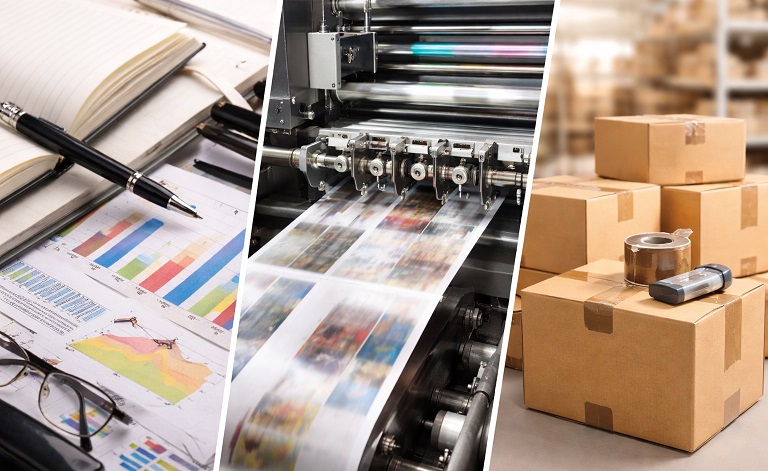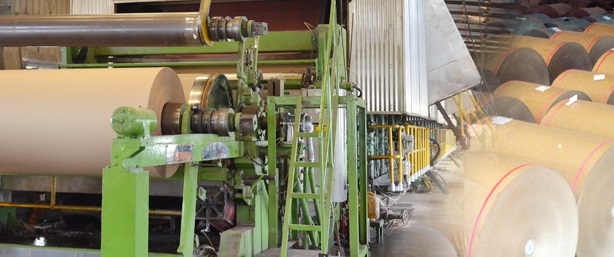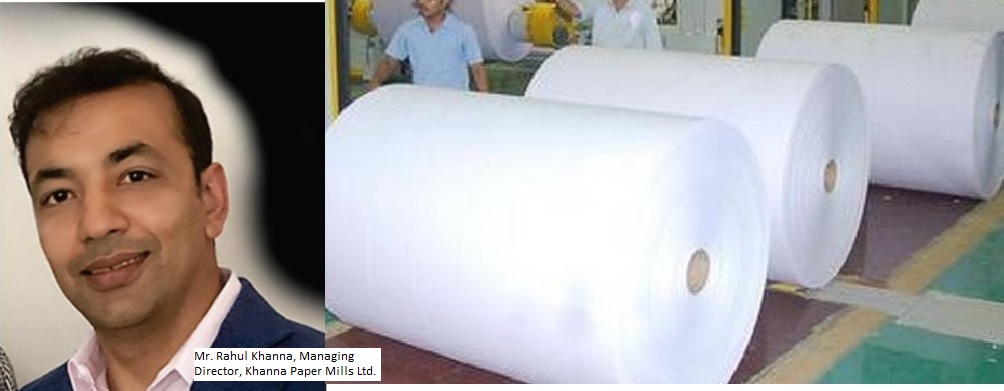Notebook Manufacturers seek examination and regulation of Paper Mills’ pricing practices, Demand Anti-Dumping duty on notebook imports

Notebook Manufacturers seek examination and regulation of Paper Mills’ pricing practices, Demand Anti-Dumping duty on notebook imports
- Urgent Request to Protect Domestic Notebook Manufacturing Industry from Predatory Imports arising now due to GST changes
- Instead, or reducing prices, paper mills have increased the basic cost of paper by nearly 12%, while simultaneously removing GST
The Pulp and Paper Times |New Delhi:
The All India Notebook Manufacturers Association has written to Shri Piyush Goyal, Hon’ble Minister of Commerce & Industry, raising alarm over what it describes as “an existential threat” to the domestic notebook manufacturing sector arising from recent GST changes. The Association has also marked the representation to the GST Council and the Ministry of MSME.
In its appeal, the body expressed gratitude to the Hon’ble Prime Minister and the Government of India for undertaking bold steps under GST 2.0 reforms to simplify taxation and promote economic growth. However, it cautioned that unintended consequences of the GST revisions are severely distorting the market, placing thousands of MSMEs and lakhs of workers at risk.
The Association highlighted, the recent decision to reduce the GST rate on paper used for notebooks to 0% was aimed at providing relief to the education sector. However, in practice, this measure has created severe distortions in the market. Instead or reducing prices, paper mills have increased the basic cost of paper by nearly 12%, while simultaneously removing GST. This has led to an overall increase in raw material prices, making paper — the most critical input for notebooks — significantly more expensive.
Rising Notebook Prices and Pressure on MSMEs
The letter states that notebook prices are rising instead of decreasing, defeating the very intent of GST reduction. MSME manufacturers, who operate on thin margins, are facing immense pressure as raw material costs escalate, threatening their sustainability.
Unfair Tax Burden and Import Advantage
The Association underscored a structural imbalance:
• Paperboard and other essential raw materials for notebook production attract 18% GST.
• In contrast, imported notebooks now come in at 0% GST, giving foreign suppliers an undue advantage.
“This anomaly defeats the spirit of the ‘Make in India’ programme and exposes domestic producers to predatory competition,” the letter warned.
Threat of Predatory Imports from ASEAN Countries
Citing the ASEAN Free Trade Agreement, the Association flagged that imports from Indonesia, Thailand, and Malaysia enter India at zero customs duty. With GST exemptions, these imported notebooks are now cheaper than Indian products, despite the country’s ample capacity to meet domestic demand.
Impact on Small-Scale Industry, Employment, and Farmers
Notebook manufacturing is largely a small-scale, labour-intensive industry spread across rural and semi-urban regions. The Association warned that an influx of cheaper imports would wipe out local industries, leading to massive unemployment and loss of existing investments.
It also noted the cascading impact on farmers, since the Indian Paper Manufacturers’ Association (IPMA) has already cautioned that higher reliance on imported pulp and paper will cause significant foreign exchange outflow and reduce demand for domestically sourced wood, thereby harming rural economies.
Urgent Requests to Government
The Association urged the Commerce and Industry Minister and concerned ministries to act swiftly to protect the sector. Key demands include:
• Examination and regulation of paper mills’ pricing practices following the GST change.
• Imposition of anti-dumping duties or immediate restrictions on notebook imports, given that Indian manufacturers can meet national demand.
• Ensuring that GST benefits reach end consumers and students instead of being absorbed at the raw material stage.
• Correcting the anomaly where raw materials face higher taxation than finished imported notebooks.
• Preventing ASEAN exporters, particularly from Indonesia, from exploiting GST distortions to flood Indian markets.
“The Indian notebook industry employs lakhs of workers directly and indirectly, while supporting affordable education. If unchecked, this situation could collapse many MSMEs and wipe out crucial employment in this labour-intensive sector,” the Association concluded in its letter, appealing for immediate intervention.
Web Title: Notebook Manufacturers seek examination and regulation of Paper Mills’ pricing practices, Demand Anti-Dumping duty on notebook imports




 Join WhatsApp Group
Join WhatsApp Group Join Telegram Channel
Join Telegram Channel Join YouTube Channel
Join YouTube Channel Join Job Channel (View | Submit Jobs)
Join Job Channel (View | Submit Jobs) Join Buy Sell Channel (Free to Submit)
Join Buy Sell Channel (Free to Submit) Paper News Headlines Channel (Free to read)
Paper News Headlines Channel (Free to read)














